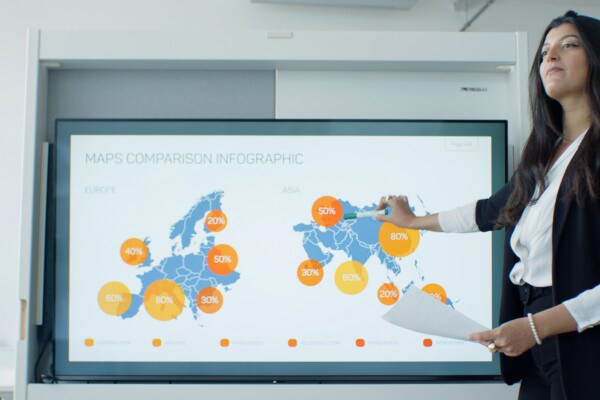The effects of the global pandemic have been devastating for communities across the world, and as we work to rebuild, we’re presented with an opportunity for growth as well as recovery.
Social Value – also known as corporate social responsibility, creating shared value and/or social responsibility – is a growing priority for every organisation. The UK Sustainable Procurement Taskforce gives us a solid definition that is useful in understanding the concept:
Social Value is a process whereby organisations meet their needs for good, services, works and utilities in a way that achieves value for money on a whole-life basis in terms of generating benefits, not only to the organisation, but also to society and economy, whilst minimising damage to the environment.
Where to start?
It can be difficult to know where to begin. So let’s break it down and start with the easiest method of ensuring that what we do, actually makes a difference – ask people!
Speak to staff, other local businesses, customers, local community members, suppliers. From their collated experiences, impacted communities or local groups can be identified, positive solutions researched and developed, and opportunities for positive environmental and social impact identified and created. By understanding the actual challenges communities face, and what could have a positive impact on lives, a picture of effective activity can be built, thereby avoiding the mistake of trying to second-guess what would create real Social Value within any given organisation’s area of operation.
Creating real Social Value needs to be embedded within an organisation’s culture. Therefore, the next step is to look internally, and to review every aspect of the organisation; from how people travel to work, the time they spend doing their jobs, how products are manufactured and distributed, how admin processes are conducted, packaging, sales, waste management, communication – literally everything! In the past many organisations have reviewed these areas from a financial point of view – how can they be done more cost effectively; these reviews now need to evolve into also being carried out through the eye of Social Value.
By bringing these two data sets together a picture starts to evolve of what can be done to positively impact the people, environment and economy around you – At Accordant we think of this as People, Planet and Prosperity. By embedding these elements within the culture and ensuring they fit within the capabilities and values of an organisation, a delivery framework can be developed that ensures Social Value outcomes are maximised, thereby contributing to areas which really matter.
What does Social Value look like in practice?
By way of example, the housing industry is a frontrunner in terms of delivering Social Value and has been geared towards this type of thinking for some time. It’s no longer simply about building and selling property – it’s about offering affordable solutions and supporting people to get on the housing ladder. It’s about building communities with green spaces, play parks and social areas that don’t just provide a place to live, but somewhere people can thrive.
Local authorities have been front-runners in focussing on this area. For example, Manchester City Council has developed a clear Social Value Policy that defines what they consider as important areas for delivery that suppliers, staff, stakeholders and local businesses can use to guide their working practices. This policy document includes key areas such as creating employment opportunities, supporting staff with a Real Living Wage, working towards an ambition of zero emissions, seeking Social Value commitments as part of procurement processes, and the support of volunteering and charitable giving programmes within local communities.
In the private sector too, awareness of seeking opportunities to create positive environmental and Social Value impact is growing. The possibilities are countless, yet by way of example, many businesses are developing new ways of working and processes that mean they can reuse products previously considered as waste. Textile producers are re-engineering their production processes, taking items such as plastic bottles and using them to create furniture fabrics, an idea that years ago would have been an impossibility. Sustainability and the circular economy are becoming the focus for new ways of operating.
How can you make sure it’s working?
From research, an organisation may already know that what they’re doing is valuable to society, yet to demonstrate the value created, effective measurement tools for the different elements need to be established. It is a reality that organisations need to measure and report on all aspects of their operations, with a growing and strengthening emphasis on transparency.
Some elements can seem tough to measure, yet with the right tools anything can be monitored, measured and reported. Accordant’s bespoke AccSL® suite of software, which encompasses AccSL® Finance, AccSL® Carbon, and AccSL® Social modules allows us to capture and analyse the three pillars of People, Planet and Prosperity, quickly and address the challenge – skills, time, depth of analysis and reporting – in a single pane of glass.
With an increasing number of organisations and customers considering Social Value credentials as a significant part of their buying decision, this is an area of interest which is only going to grow. Wherever your organisation is on its Social Value journey, we would be delighted to demonstrate how Accordant could partner with you to bring added value to both your organisation and your wider stakeholders.




